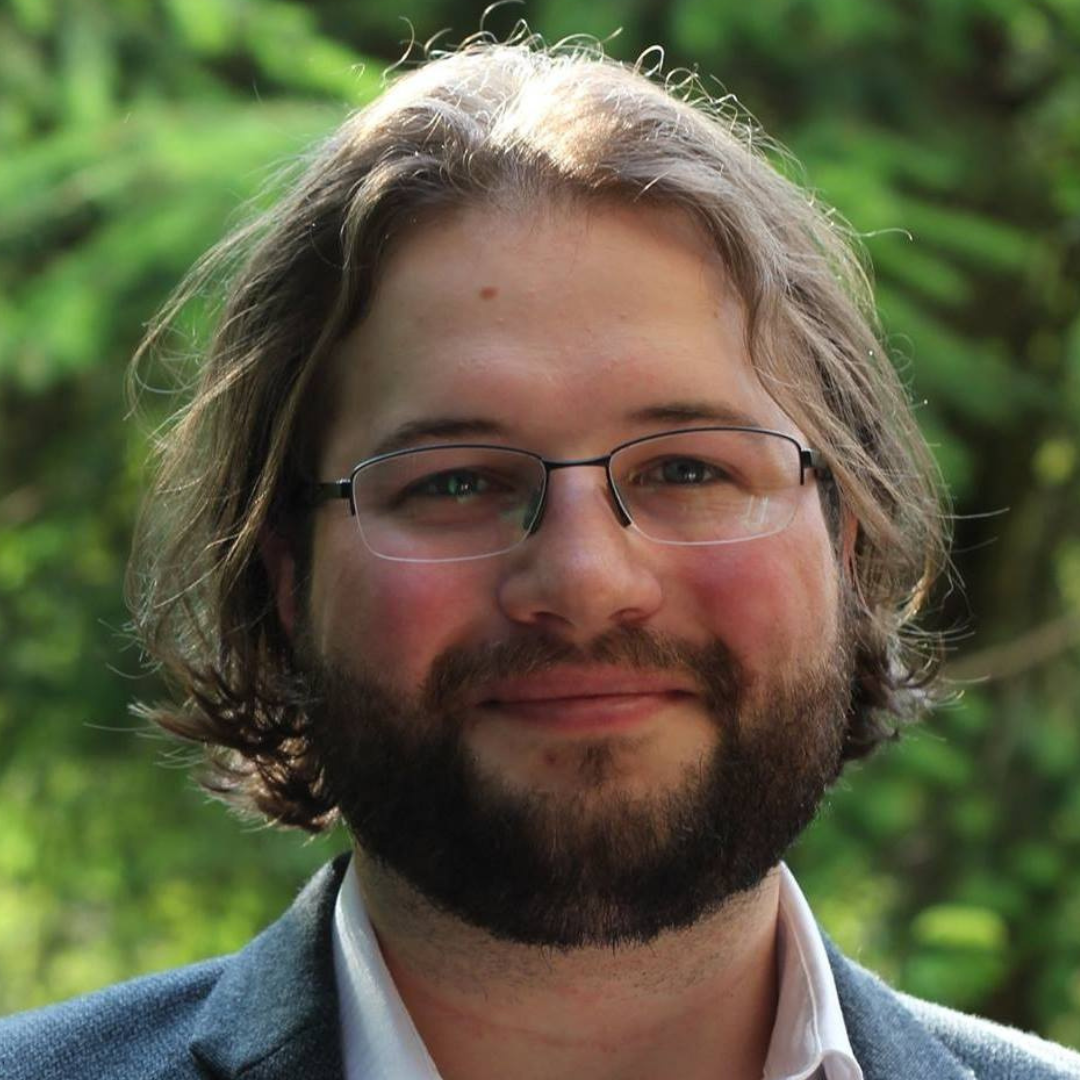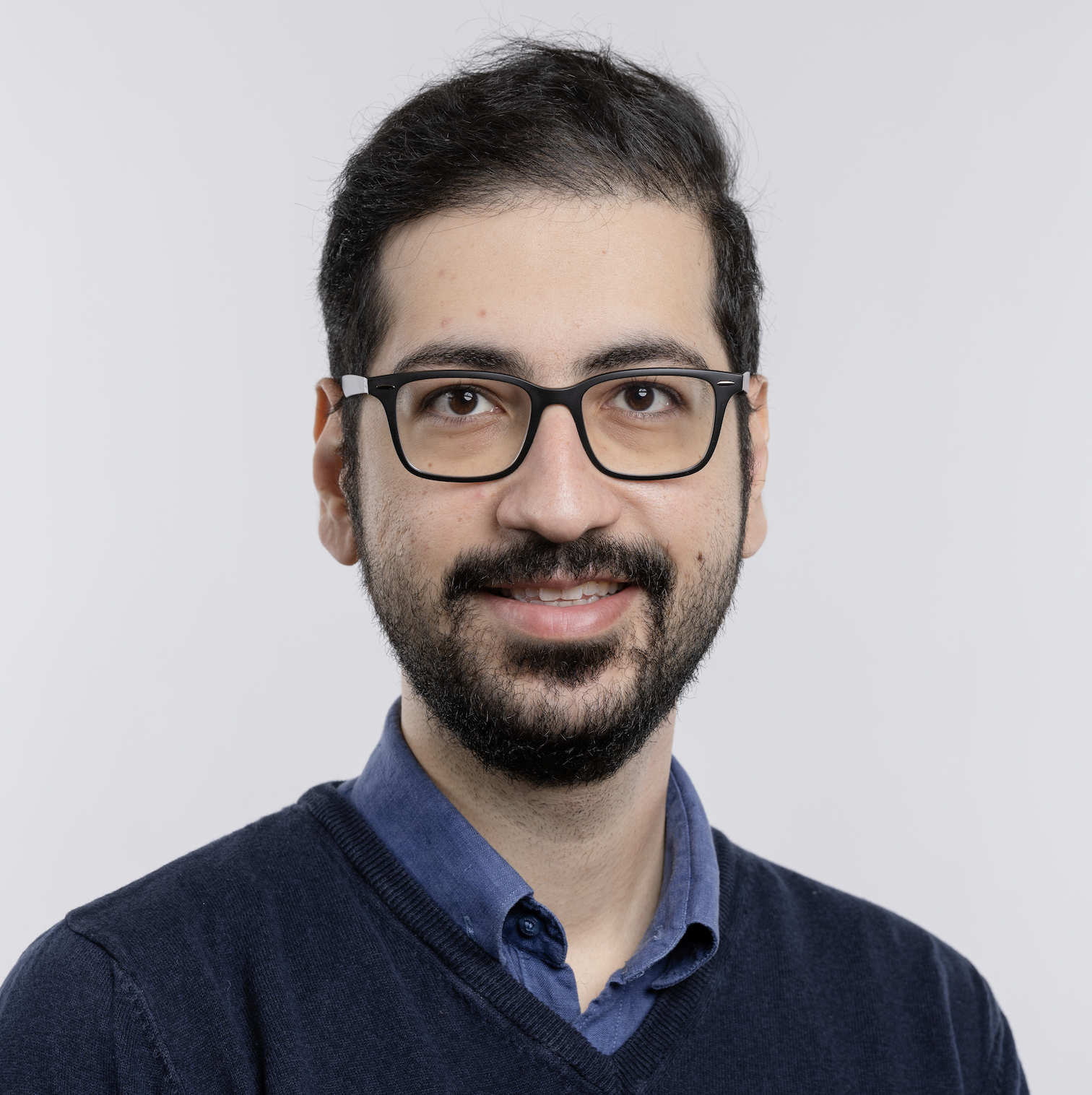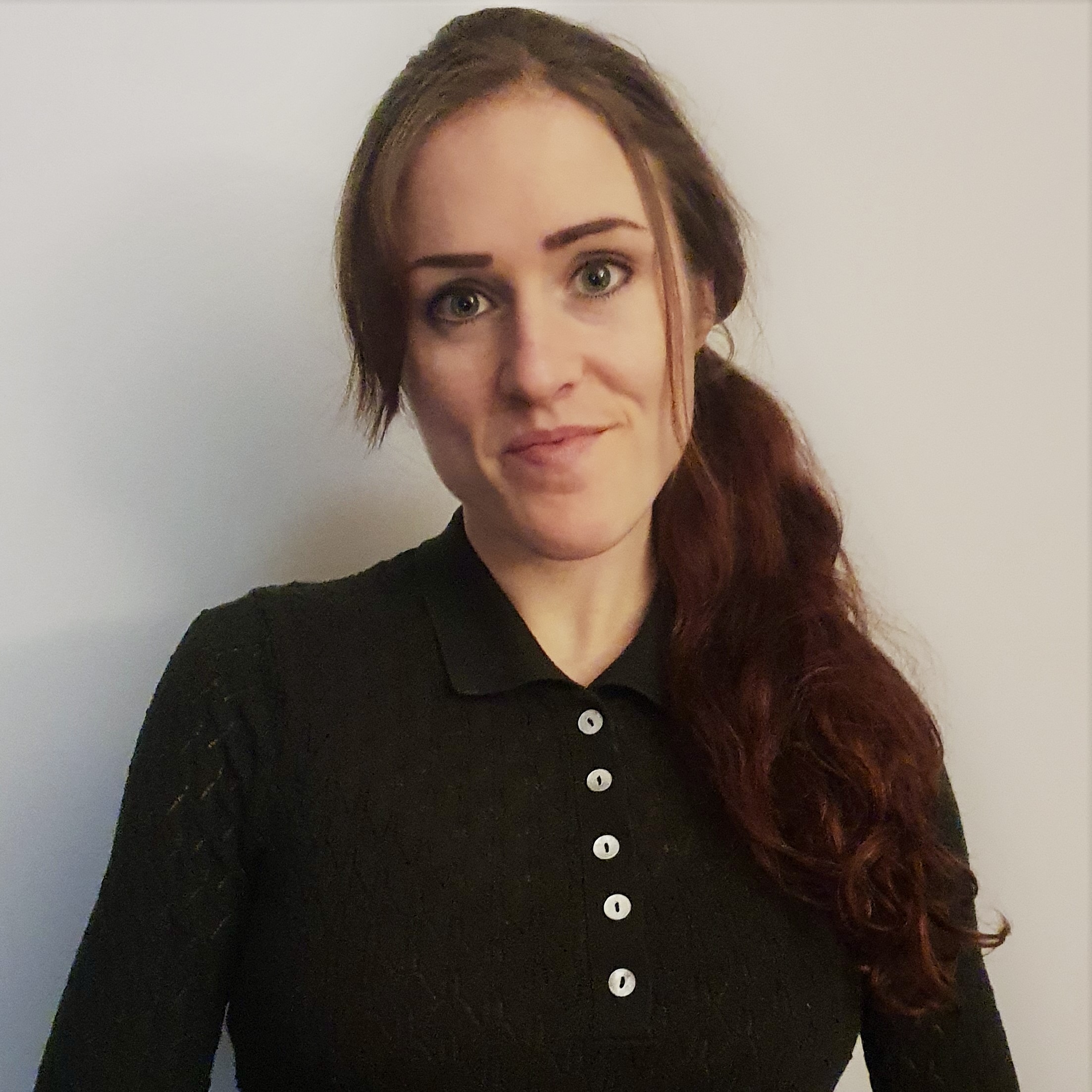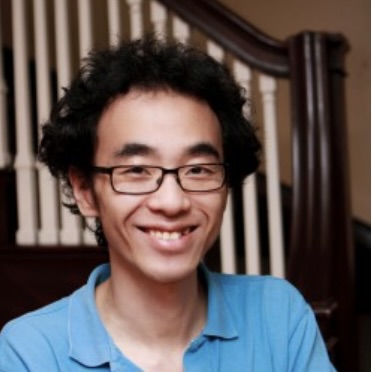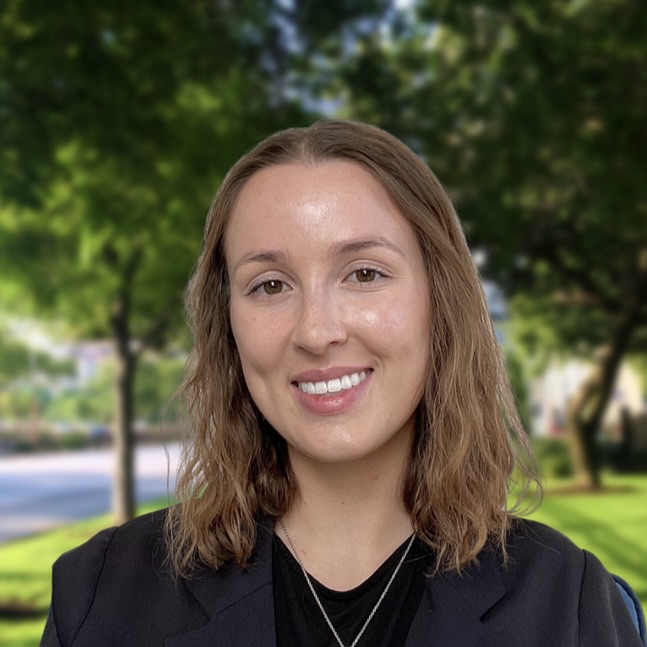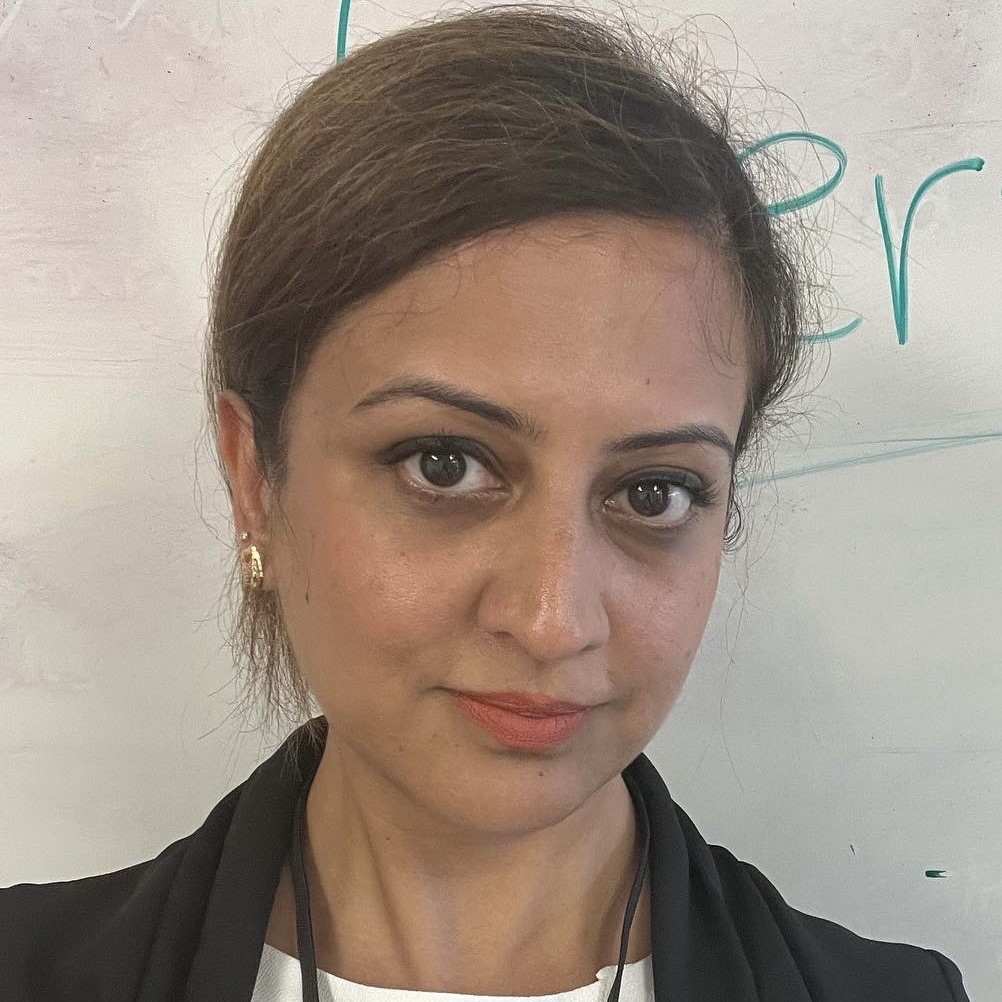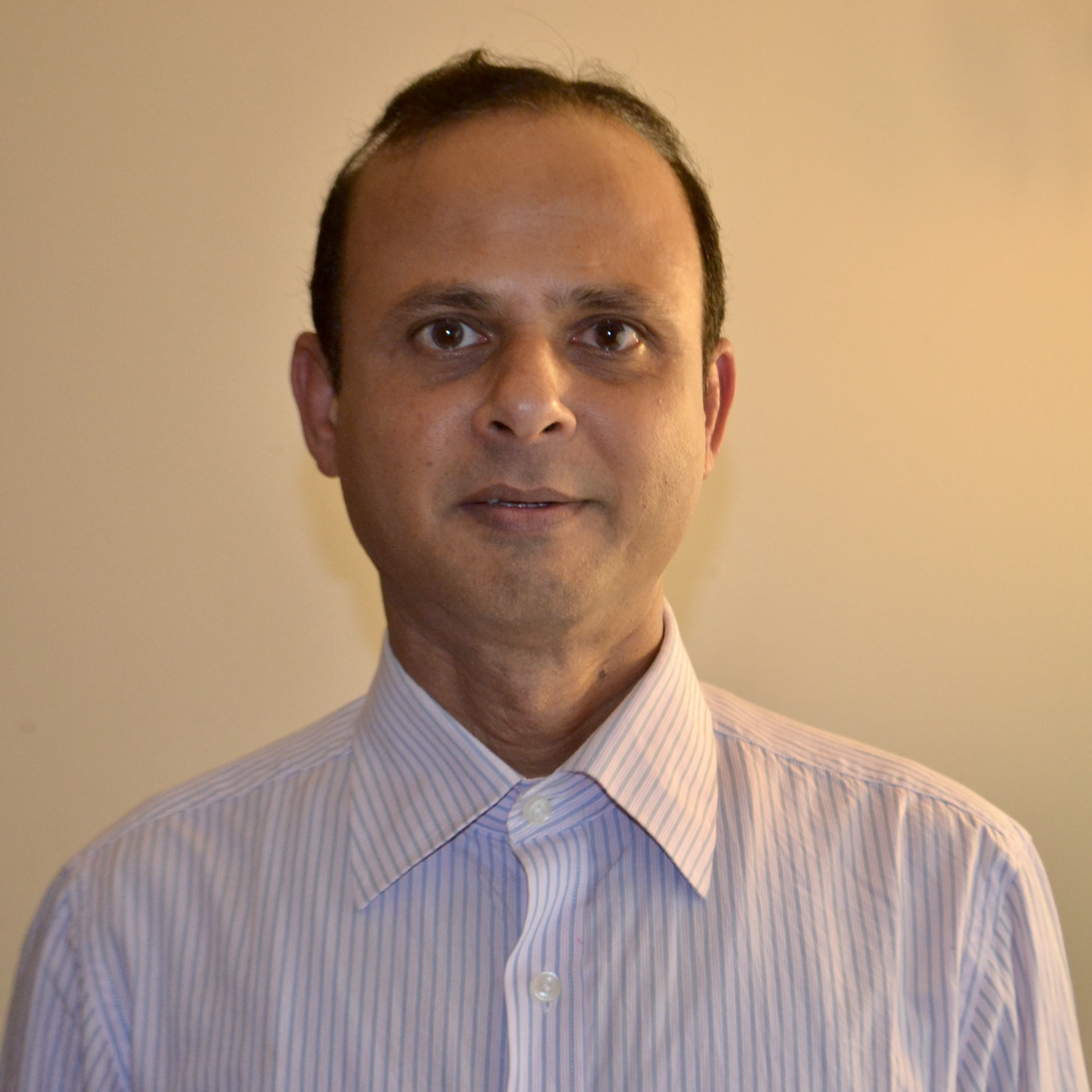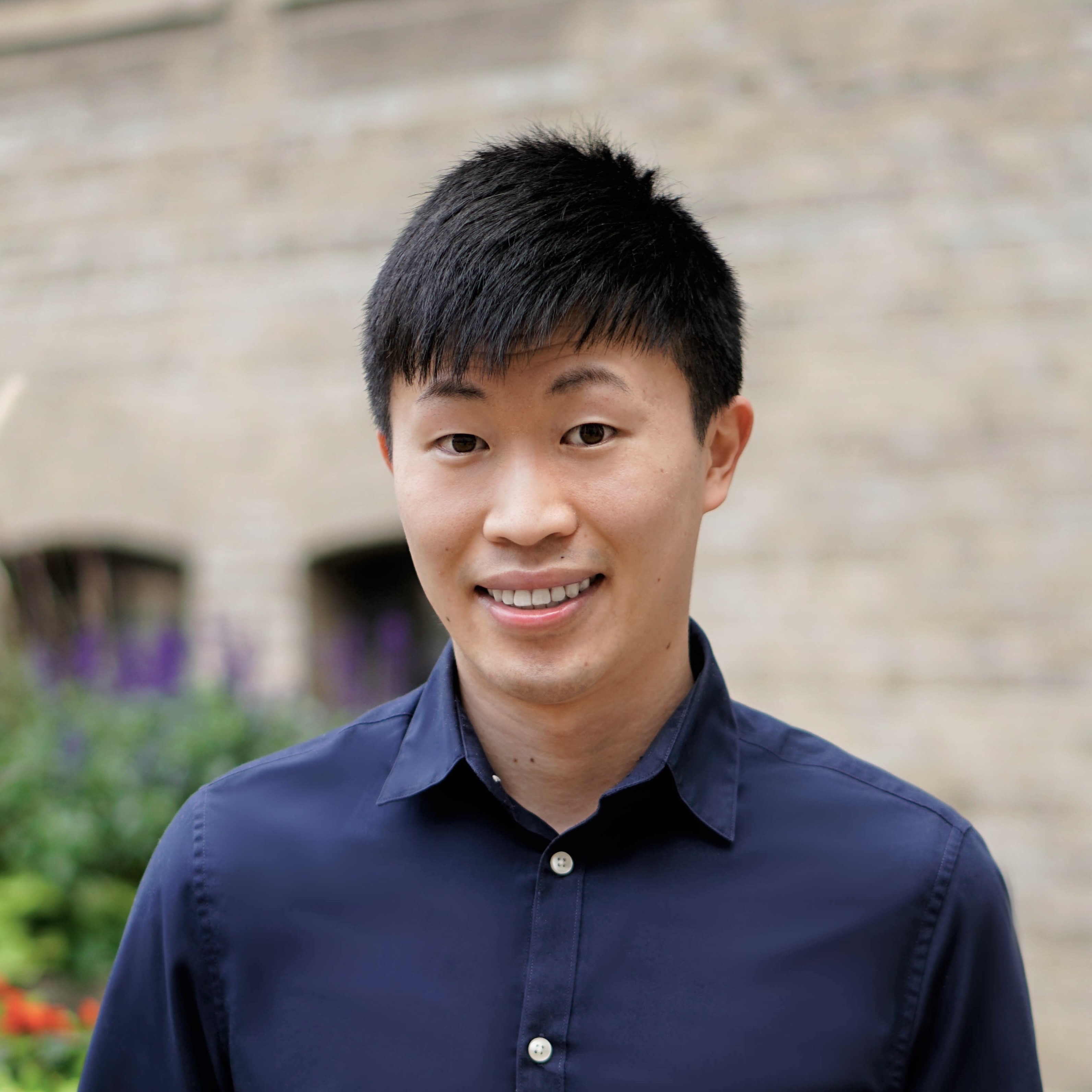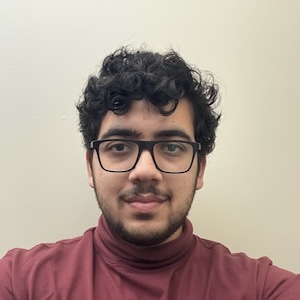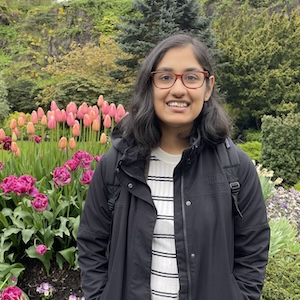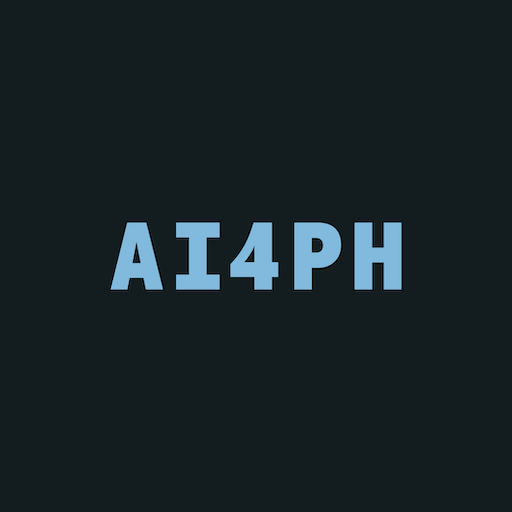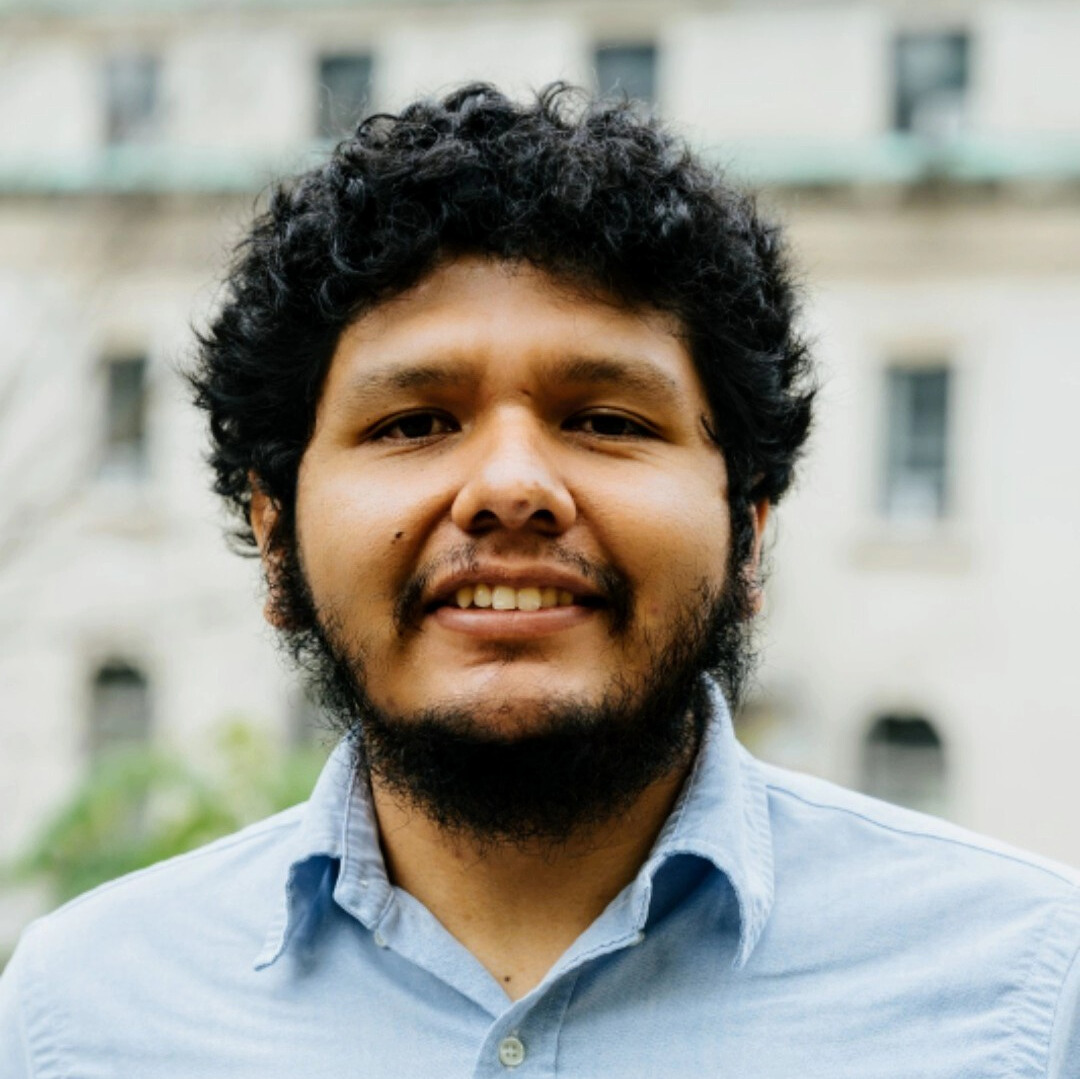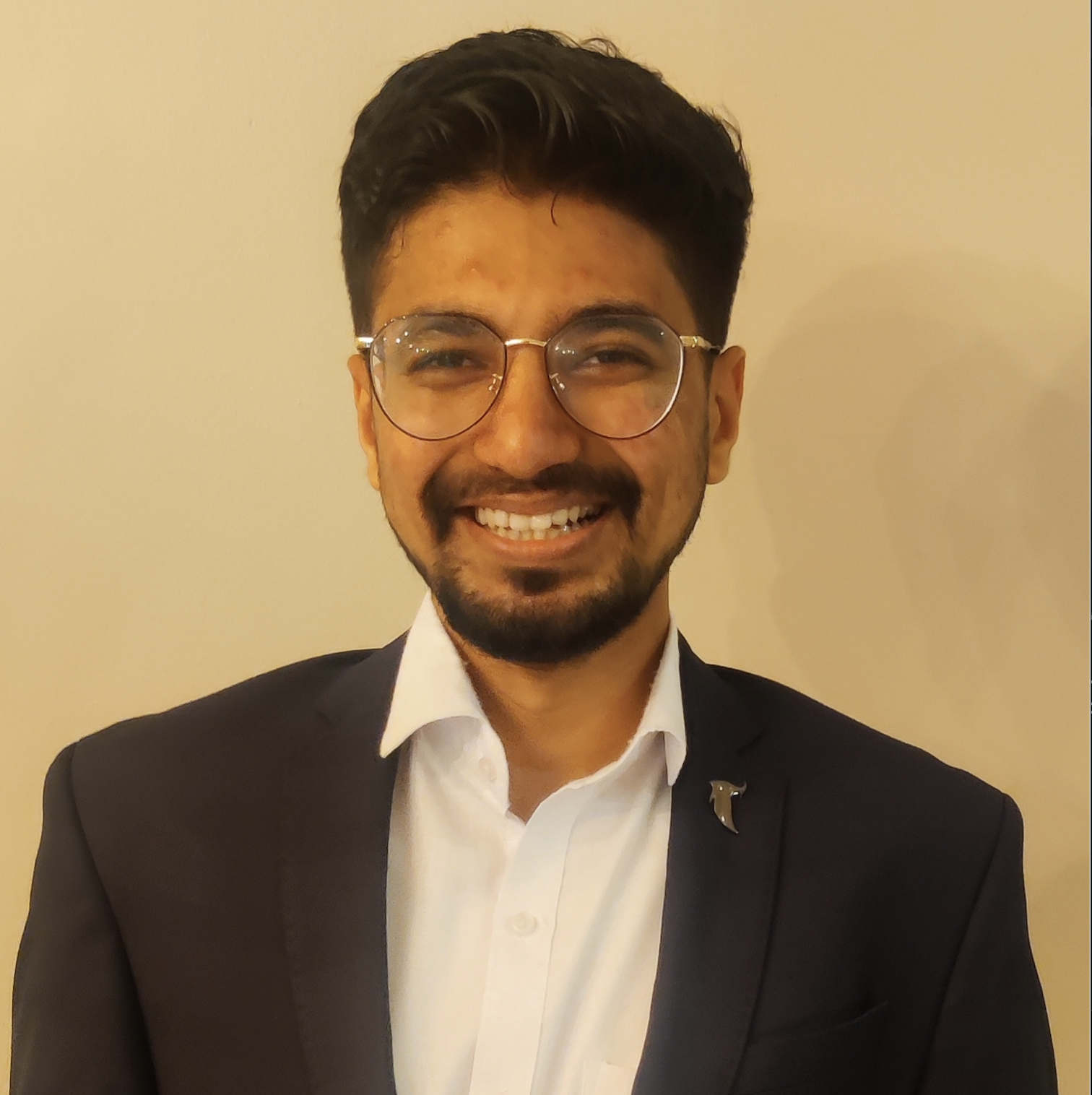Meet Our Trainees
2024-2025
Léo Cadillac

PROJECT TITLE: Study on the implementation and the regulation of Digital Therapeutics (DTx) in the Canadian health care system regarding health equity. Guidelines and best practices from models developed by the most advanced countries in this field.
Léo is a PhD candidate in pharmaceutical sciences and public health in cotutelle between University of Montreal and Simon Fraser University. His research focuses on the implementation of Digital Therapeutics (DTx) in healthcare in Canada ; by identifying and extracting guidelines, good practices and prerequisites from the most advanced countries regarding DTx implementation. Léo is also member of the NIH Common Fund’s Bridge to Artificial Intelligence – Voice as a Biomarker of Health (Bridge2AI) program, with the mission to develop a large-scale, diverse and ethically sourced voice database linked to other health biomarkers to help diagnose diseases.
Sean Feng
PROJECT TITLE: Dynamic Prediction Models for Tooth Loss Incorporating Logitudinal Tooth-level Predictors
Xinyang is a PhD student in Biostatistics at the Dalla Lana School of Public Health, University of Toronto. His research interests focus on the development of dynamic prediction model that fully incorporates changes in the longitudinal predictors, with the ability to account for within-cluster correlation in complex multilevel data.
Pablo Galvez Hernandez

PROJECT TITLE: Optimizing Interprofessional Primary Care Team Configurations in Ontario: Using Administrative Data and Machine Learning to Predict Optimal Team Configurations for Different Patient Panels
Pablo is a Postdoctoral Fellow at the Institute of Health Policy, Management and Evaluation (IHPME) at the University of Toronto, working with Dr. Walter Wodchis. His research examines the impact of diverse interprofessional primary care team configurations on outcomes across various patient panel populations. Using machine learning techniques, Pablo aims to untangle complex high-dimensional data involved in interactions between primary care teams and populations. Ultimately, he aims to identify effective team configurations while identifying inequities in care access and improvement of health outcomes.
Ingrid Giesinger
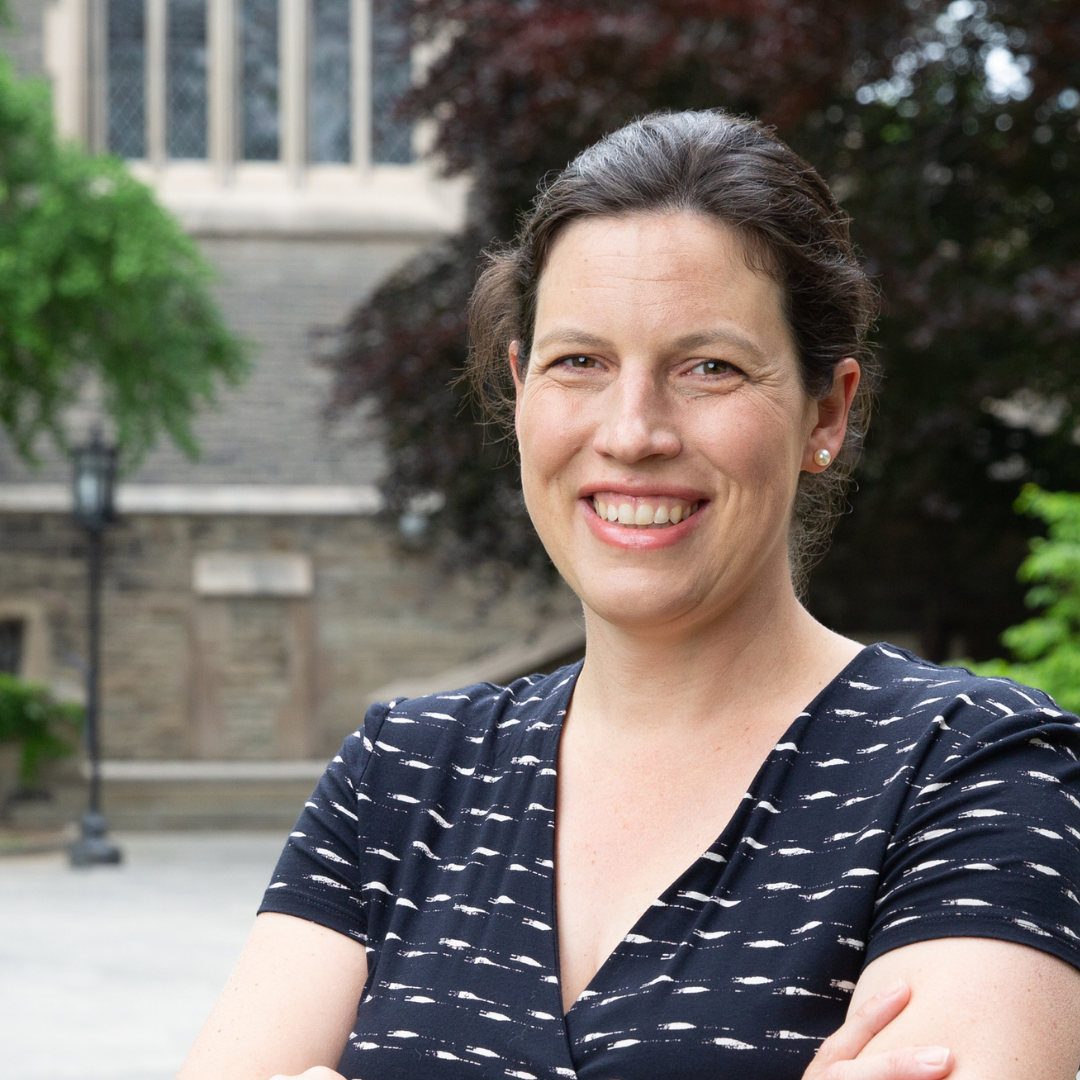 PROJECT TITLE: Addressing the single-risk factor framework through machine learning: applications in multimorbidity
PROJECT TITLE: Addressing the single-risk factor framework through machine learning: applications in multimorbidity
Ingrid is a doctoral candidate in Epidemiology at the Dalla Lana School of Public Health at the University of Toronto. Ingrid has extensive experience as a statistician with the British Civil Service, and as a research scientist with the World Trade Center Health Registry in New York City. She holds a BSc in Natural Science from the University of Calgary, a BEd from the University of Toronto and a MSc in Health & Society: Social Epidemiology from the University College London. Through her PhD research, Ingrid will utilise machine learning methods to develop a theoretically informed social risk measure, and evaluate the effect of social risk clustering on multimorbidity in Ontario.
Omid Jafarinezhad
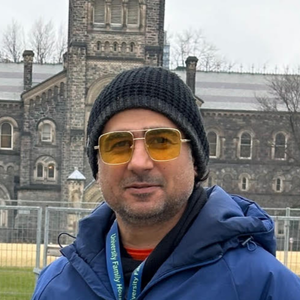
PROJECT TITLE: HiveBridge: Fostering Collaborative AI Model Training Using a Low-Code Platform
Omid is a PhD student in Health Informatics at the University of Toronto, with over two decades of experience in software engineering. He is currently focused on leveraging AI and ML to enhance healthcare through patient-level data collaboration while ensuring robust privacy protections. He has led innovative startups and projects and is now working on an open-source platform democratizing AI development in healthcare. His research includes analyzing the dynamics of data sharing in the Canadian AI landscape, aiming to enhance collaboration and innovation across the field. Omid is passionate about applying cutting-edge technologies to solve real-world challenges.
Kamyar Kazari
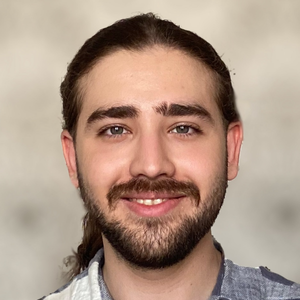
PROJECT TITLE: Exploring AI-Powered Digital Decoding of Unhealthy Online Gaming and Gambling
Kamyar recently completed his B.Sc. in Computer Engineering at Sharif University of Technology and will be pursuing a Master’s in Health Systems Research with a focus on Artificial Intelligence at the University of Toronto this Fall. He is deeply passionate about Deep Learning and its transformative applications, particularly in Public Health. Kamyar’s current research focuses on leveraging AI to detect unhealthy gambling behavior and analyze the marketing strategies employed by gambling companies. His work aims to make a significant impact in the intersection of technology and health, driving forward innovations that can benefit society.
Steve Lee
PROJECT TITLE: Applications of Novel Statistical and Machine Learning Methods for the Descriptive Epidemiology of Hidden Populations in Mental Health Research
Steve H. Lee is a PhD candidate in Epidemiology and Biostatistics at Western University. He also holds a Master of Science in Epidemiology and Biostatistics also from Western University, and a Master of Arts in Quantitative Methods in Social Sciences with a concentration in Economics from Columbia University in the City of New York. He has a wide range of research interests including mental health services research, cluster analytic methods, Bayesian data analysis, social network analysis, natural language processing, and health economics. His current research involves the use of advanced descriptive techniques, such as social network analysis and clustering, and novel synthesis of data from both traditional and non-traditional data sources to better understand the mental health needs of the population. Outside of his academic endeavours, Steve is an avid musician serving as keyboardist of the cover band, Gravity Wagon, and as principal violist of the London Community Orchestra.
Hassan Maleki Golandouz
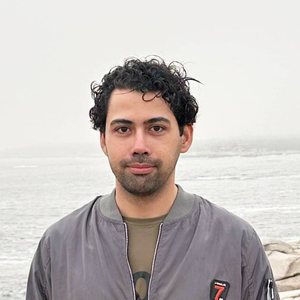
PROJECT TITLE: Enhancing Osteoarthritis Predictive Models: Developing and Validating Deep Learning Techniques for Anomaly Detection and Synthetic Data Generation in Administrative Health Datasets
Hassan is a PhD candidate in Community Health Sciences at the University of Manitoba, affiliated with the Manitoba Centre for Health Policy and the George & Fay Yee Centre for Healthcare Innovation. His research focuses on generating realistic synthetic data from administrative health data using generative AI and statistical methods to create equitable risk prediction models across population sub-groups. With a background in Computer Engineering and AI, Hassan has over five years of research and work experience in data mining and natural language processing.
Barret Monchka

PROJECT TITLE: Optimizing and automating the probabilistic linkage of large-scale administrative health and social data to enhance the equity, diversity, and inclusion of study participants in linked data analyses, and protect data privacy
Barret Monchka is currently pursuing a PhD in Community Health Sciences at the University of Manitoba, where his research focuses on enhancing the quality of linked administrative data. Barret also serves as a data analyst at the George & Fay Yee Centre for Healthcare Innovation where his research activities include automating and optimizing probabilistic record linkage, employing deep learning techniques for medical image interpretation, and efficiently annotating large sets of images collected by longitudinal health studies. Barret’s interests in artificial intelligence are centered on model validation, strategies for training fair and unbiased models, and enhancing external generalizability. He holds a Bachelor of Computer Science and an MSc in Community Health Sciences, both from the University of Manitoba.
Mohammad Noaeen

PROJECT TITLE: Developing Personalized Lifestyle Recommendations for People at Risk of Developing Type 2 Diabetes Mellitus
Mohammad Noaeen is a Data Science Institute (DSI) Postdoctoral Research Fellow at the Dalla Lana School of Public Health, Institute of Health Policy, Management and Evaluation, University of Toronto. He received his PhD in Software Engineering from the University of Calgary, with expertise in AI, data science, system control and modeling, and optimization. Supported by DSI and AI4PH, his current research aims to enhance early diabetes detection and prevention by integrating multidimensional data through advanced data science methods, grounded in a well-articulated model of predictive, prescriptive, preventive, personalized, and participatory (P5) medicine. Mohammad’s research centers on health informatics, health data science, health equity, digital health, environmental health, and intelligent transportation systems.
Gemma Postill
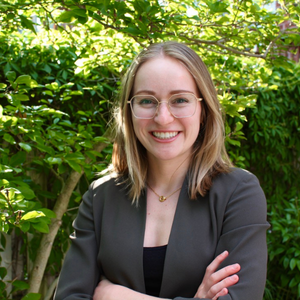
PROJECT TITLE: Aging in Place for Older Adults after Traumatic Injury in Ontario, Canada
Gemma Postill is an MD/PhD student at UofT under the co-supervision of Dr. Laura Rosella and Dr. Barbara Haas. Her thesis focuses on using machine learning to anticipate the long-term outcomes of older adults after traumatic injury. Gemma completed her undergraduate at Western University in One Health, which inspired her to become a clinician-scientist by highlighting the intersection of research and medicine as well as the need to take a systems-level approach to healthcare given the many factors that influence health. Gemma is also the student education co-lead with Temerty Center for Artificial Intelligence Research and Education in Medicine (T-CAIREM).
Yu Shi

PROJECT TITLE: Enhancing Disease Risk Prediction through Cross-Cohorts Domain Adaptation Techniques and Longitudinal Data Integration
Yu Shi is a third-year PhD student in Biostatistics at the University of Toronto. Her research focuses on developing and applying advanced machine learning and statistical techniques to address challenges related to out-of-distribution data with their applications to health research.
Mike Zhu
PROJECT TITLE: FedWeight – Mitigate Covariate Shift of Federated Learning of EHR Data for Surveillance through Re-weighting
He Zhu is currently a PhD student at McGill University. He is deeply passionate about exploring electronic health records and single-cell genomic data, driven by his fervour for advancing data-driven healthcare solutions. His current research mainly focuses on mitigating the covariate shift challenges within healthcare-focused federated learning environments.
2023-2024
Jason Black

PROJECT TITLE: Investigating ensemble methods to improve risk estimates for chronic disease in Canadian primary care: an equity-based case study with diabetes complications prognostic prediction models
Jason is an epidemiology and biostatistics PhD student based at the Centre for Health Informatics at the University of Calgary. His research focuses on evaluating and improving prediction models using statistical and machine learning methods to advance their implementation in clinical care and decision-making. Jason is fascinated by the powerful insights that can be derived from health data and the methods used to unlock such impactful knowledge, including artificial intelligence. He holds a master’s degree in epidemiology and biostatistics from Western University and has worked extensively in analysing health care data from diverse settings, including the Canadian Institute for Health Information.
Esther Davies
PROJECT TITLE: A public health solution to inequitable (in)fertility care: Exploring the opportunities and ethical considerations of using AI technology (in)fertility care
Esther is a second year PhD student in Social and Behavioural Health Sciences at the Dalla Lana School of Public Health, University of Toronto. She completed a master’s in Health Science (Bioethics) at the University of Toronto and an Honours bachelor’s in Health Science (specialization) at Western University as a Western Scholar. Esther’s research interests lie at the intersection of women’s health, innovative technologies, and bioethics. As part of her doctoral research, Esther will be exploring the ethical considerations in the use and design of AI-enabled digital and reproductive technologies in (in)fertility care.
Zoha Khawaja
PROJECT TITLE: Guiding Ethical Design and Usage of Voice-Based Virtual Conversational Agents in Digital Mental Healthcare: Fostering Responsible AI Therapeutic Support
“Zoha is currently in the second year of her Master of Science in Health Sciences program at Simon Fraser University. As a member of the Voice as a Biomarker Consortium, a U.S. National Institutes of Health-funded initiative under the Bridge to Artificial Intelligence (AI) program, her thesis focuses on proactively creating a consensus-driven normative governance framework for the ethical design and implementation of voice-based AI-powered virtual conversational agents (VCAs) utilized for monitoring, diagnostic, and therapeutic purposes.
Zoha is exhilarated to be joining the AI4PH Health Research Training Platform (HRTP) where she hopes she will learn from and grow amongst adroit members, as well as build capacity in designing and implementing innovative and equitable AI in the public health sector.
Anasua Kundu
PROJECT TITLE: Determinants of vaping cessation among youth e-cigarette users
Anasua is a PhD student at Institute of Medical Science, University of Toronto. She has completed a Master’s in Family and Community Medicine with a Collaborative Specialization in Addiction Studies from Dalla Lana School of Public Health. She also has a MBBS degree and served as a physician for five years in Bangladesh. Affiliated with Ontario Tobacco Research Unit, she also has multiple tobacco and substance use related publications in high-impact journals. Her PhD research involves machine learning-based analysis of longitudinal data to identify predictors of vaping cessation among youth e-cigarette users as well as building an algorithm for a personalized vaping cessation smartphone app.
Chapin Korosec
PROJECT TITLE: Leveraging AI and Mixed Effects Models to Understand SARS-CoV-2 Immunological Responses Amongst People with HIV: A Canadian Public Health Perspective
Chapin Korosec completed his PhD with Nancy Forde at Simon Fraser University where he focused on modelling and engineering of artificial molecular motors. He is currently an NSERC postdoctoral fellow with Jane Heffernan, co-supervised by Sajjad Ghaemi (National Research Council of Canada), at York University working to understand within-host disease dynamics and immunological responses to vaccine and infection through data-driven mathematical modelling and machine learning approaches.
Zijin Liu
PROJECT TITLE: High-dimensional Mediation Analysis Methods for Identifying Causal Pathways from COVID-19 Related Policy Changes to Radiotherapy Adverse Events
Zijin is a biostatistics PhD student at the Dalla Lana School of Public Health, University of Toronto. He completed his MMath degree in statistics from the University of Waterloo. His research interests focus on integrating ML/AI methods into the causal inference framework and developing Bayesian statistical methodologies for clinical or public health applications.
Jo-Ann Osei-Twum
PROJECT TITLE: Critical Analysis of a Population Segmentation Method and the Associated Health Equity Implications
Jo-Ann Osei-Twum is a PhD candidate at the Dalla Lana School of Public Health, University of Toronto where she specializes in epidemiology with a focus on equitable and effective applications of artificial intelligence and data science for population health.
Behrad Taghibeyglou
PROJECT TITLE: How to promote equitable sleep care among people experiencing homelessness: An AI-enabled person-centred computer vision-based solution
Behrad Taghibeyglou is a Ph.D. candidate in biomedical engineering at the University of Toronto. He has a broad educational background, holding dual bachelor’s degrees in biomedical engineering and electrical engineering from Amirkabir University of Technology in Iran and a master’s degree in biomedical engineering from Sharif University of Technology. Behrad’s research focuses on the intersection of biomedical signal processing, machine learning, and computer vision to enhance health outcomes. His current Ph.D. thesis centers on developing digital technologies to monitor sleep in individuals from low socioeconomic status
2022-2023
Mohamad Ahmadinejad
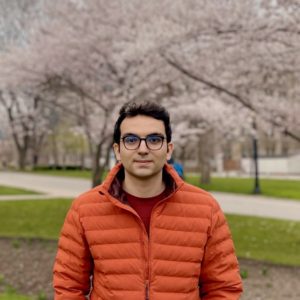
PROJECT TITLE: Automatic Cyberbullying Detection in the Text-Based Platforms
Mohamad is an MSc student in the department of Computer Science at the University of Regina. His primary research area is developing prediction and classification models using Machine Learning and Deep Learning algorithms. He has collaborated with researchers in various disciplines, including insurance, healthcare, public health, social media, and computer networks. In his recent study, he is leading a project on developing Natural Language Processing for information retrieval and sentiment analysis in text-based services.
Erin Collins
PROJECT TITLE: Agent-based modelling of Post COVID-19 Condition (PCC) onset and trajectory using Canadian research data
Erin is a PhD candidate in Epidemiology at the University of Ottawa. Supervised by Dr. Julian Little and AI4PH mentor Dr. Doug Manuel, Erin is applying an agent-based approach to model onset and trajectory of Post COVID-19 Condition (PCC) overtime using clinical and lab-based Canadian research data. Erin is also a data analyst with the Public Health Agency of Canada’s Population Health Modelling Unit, managed by Dr. Rojiemiahd Edjoc.
Joseph Donia
PROJECT TITLE: Normativity and agency in the development of an AI technology for health: a design ethics case study
Joseph is a PhD student at the Institute of Health Policy, Management and Evaluation at the University of Toronto where his research is supported by a Social Sciences and Humanities Research Council (SSHRC) Doctoral Fellowship. His research examines the ethics and politics of digital health innovation, with an emphasis on the norms and values that characterize AI design and development processes. In 2021-22 Joseph held the Benita M. Warmbold Fellowship in Health System Innovation at Women’s College Hospital in Toronto, and a Graduate Fellowship in Ethics of AI at the University of Toronto’s Centre for Ethics. In 2018 he was selected as an inaugural scholar in AI Ethics and Health by the University of Toronto’s Joint Centre for Bioethics.
Dr Hiroshi Mamiya
PROJECT TITLE: Towards incorporating accelerometer and Global Positioning System data into population health research: application of Bayesian machine learning algorithm and formalization of selective daily mobility bias.
Hiroshi is a post-doctoral fellow working with Dr. Daniel Fuller at the University of Saskatchewan. His research interest is to develop novel measurements describing lifestyle risk factors, such as physical activity and dietary patterns, using the digital streams of population behaviours generated by location-coded wearable devices and consumer transactions. He obtained a PhD in Epidemiology from McGill University, where he developed novel neighbourhood measures of food purchasing using grocery transaction data in Montreal.
Carolyn Quinlan
PROJECT TITLE: Designing a computer vision machine learning algorithm to identify hip fractures: a retrospective case study
Carolyn is currently completing her MSc HSR in Health Systems Artificial Intelligence, as well as a Collaborative Specialization in bioethics at the Joint Centre of Bioethics at the University of Toronto. Prior to this, she completed her bachelor’s degree in bioethics and cognitive science at the University of Toronto. Carolyn’s research explores the process of designing an algorithm for use in clinical care, as well as the perceived utility of resources intended to help designers assess the social and ethical impacts of the decisions they make during the algorithm design process.
Dr. Shaina Raza
PROJECT TITLE: Utilizing artificial intelligence to reduce health disparities and promote equity among marginalized populations in the post-COVID era.
Shaina is a CIHR Health System Impact Fellow. Her post-doctoral fellowship is co-funded by the CIHR Institute of Population and Public Health (CIHR-IPPH)/Equitable AI and Public Health Ontario. Her host institute is Public Health Ontario and academic institute is Dalla Lana School of Public Health, University of Toronto. She has a PhD in Computer Science, specialized in AI, natural language processing and deep neural networks. She is also a seasoned data scientist, a scientific editor and a reviewer in peer-reviewed journals. Her research interests are in computer linguistics, social media, and in developing novel language models with a focus in biomedicine and recommender systems.
Joykrishna Sarkar
PROJECT TITLE: Effects of unstructured text data quality on the extraction of chronic disease information from electronic medical records
Joykrishna Sarkar is a PhD student in the Department of Community Health Sciences, Rady Faculty of Health Sciences, at the University of Manitoba in Winnipeg. He is also a data analyst at the Manitoba Centre for Health Policy and affiliated with the George & Fay Yee Centre for Healthcare Innovation. He has extensive experience in analyzing health administrative and survey data and has developed advanced skills in the application of statistical methods for health research. His PhD research focuses on the effects of unstructured text data quality on the extraction of chronic diseases from electronic medical records using natural language processing techniques.
Calvin Yip
PROJECT TITLE: Understanding, predicting, and preventing mortality from deaths of despair in Canada: a population-based approach
Calvin is a PhD candidate in Epidemiology at the Dalla Lana School of Public Health, University of Toronto. He completed his MSc in Epidemiology and Biostatistics at Western University, and has extensive experience using large datasets to study the epidemiology of musculoskeletal disorders. For his doctoral research, Calvin will leverage machine learning methods and detailed data on social determinants of health to advance the prediction of cause-specific mortality.
2025
Mohammad Ahmed Basri
Project Title: Utilizing AI for public health surveillance
Toronto Public Health
Mohammad earned a Master’s in Systems Design Engineering with a specialization in AI from the University of Waterloo. He collaborated with the Public Health Agency of Canada on a synthetic data initiative and has led AI-driven healthcare projects. Mohammad is currently working with Toronto Public Health on data-centric innovations in healthcare and public health.
Ali Bahari
Project Title: AI Methods for Environmental Health and Exposure Mapping.
CANUE (Canadian Urban Environmental Health Research Consortium)Mapping
Ali is pursuing a master’s degree in Computer Science at Memorial University. He develops and applies AI methods to address real-world challenges. As a Research Assistant with CANUE, Ali is working on leveraging AI for environmental exposure mapping to support urban health research and inform public health interventions.
Tanner Boyle
Project Title: Building AI Ready Infrastructure for Northern Health Systems
Thunder Bay Regional Health Sciences
Tanner is an MSc Computer Science student at Lakehead University, focused on optimizing classifiers and reducing latency in brain-computer interfaces to improve neuroprosthetic performance. As a teaching assistant, he also mentors undergraduate students. Tanner is driven by a passion for using AI to transform medical technologies and improve public health outcomes. He is working with Thunder Bay Regional Health Sciences
Shruti Cheetu
Project Title: Strategic AI Integration for Public Health
Southwestern Public Health
Shruti is a Master of Biomedical Innovation Candidate at McMaster University. She is working with Southwestern Public Health to assess organizational readiness for AI adoption, develop educational resources and workshops, and identify opportunities for AI integration. Her work supports the creation of a strategic roadmap for responsible AI in public health.
Md Mohidul Hasan
Project Title: Exploring feasibility of LLMS for policy framework alignment
Fraser Health
Md Mohidul Hasan is an MSc student in Computational Sciences at Laurentian University, specializing in advanced machine learning and deep learning for integrating text, image, and sensor data. He has published research in NLP, medical imaging, and network security. Md is working with Fraser Health to develop real-world AI solutions for healthcare.
Bahar Rafinejad-Farahani
Project Title: AI for Global Vaccination Policy Curation
Toronto Invasive Bacterial Diseases Network (TIBDN)
Bahar holds a Master of Public Health from George Washington University, with experience in health services research and policy analysis. She is collaborating with the Toronto Invasive Bacterial Diseases Network to curate a global vaccination policy database, enabling large language models to generate policy recommendations, summarize guidelines, and conduct comparative analyses. Bahar is working with Toronto Invasive Bacterial Diseases Network at SInai Health System.
Anushka Rajaram
Project Title: Leveraging AI to Enhance Health Literacy and Social Support for Older Adult Newcomers
Saskatchewan Polytechnic
Anushka is completing an MPH specializing in Health Promotion at the University of Toronto. With expertise in health AI implementation, community-engaged research, and program evaluation, she is passionate about leveraging digital health solutions and policy to improve population health. Anushka has led interdisciplinary research teams, collaborated with global and local organizations, and presented insights to diverse audiences. Her interests include health equity, public health governance, and the intersection of AI and healthcare innovation. Anushka is working with the Centre of Health Research, Innovation and Scholarship at Saskatchewan Polytechnic.
Nauman Shakeel
Project Title: Evaluating AI Scribes in Public Health Settings
Simcoe Muskoka District Health Unit (SMDHU)
Nauman is an MSc student in the School of Public Health Sciences at the University of Waterloo. He is working with the Simcoe Muskoka District Health Unit to evaluate the effectiveness and integration of AI scribes in public health contexts to support clinical documentation and efficiency.
Nirupama Tamvada
Project Title: AI Forecasting Models for Viral Diseases and Urban Accessibility
New Brunswick Institute for Research Data and Training
Nirupama is a Data Scientist at BC Cancer with a background in statistics, biology, and machine learning. She holds a Master’s in Statistics from UBC. Previously, she worked at the BC Centre for Disease Control, where she developed forecasting models for respiratory viruses and used graph neural networks to examine urban accessibility inequities. She is now working on public health AI solutions in New Brunswick.
Arash Yoosefdoost
Project Title: Evaluating LLM Tools for Clinical Data Extractiony
Institute for Clinical Evaluative Sciences (ICES)
Arash is a data scientist specializing in AI-driven solutions for public health, environment, and sustainability. With over five years of experience in industry, academia, research, and teaching, Arash has led projects on foodborne outbreak detection, environmental modeling, and productivity tools. He is passionate about bridging industry and academia to empower communities through responsible AI. Arash is working with ICES.epository.
2024
Rawan Abulibdeh
Project Title: AI Algorithms to Enhance the Completeness and Accuracy of Patient Medication Data.
The Ontario HIV Treatment Network.
Rawan is a PhD in Electrical and Computer Engineering. Rawan is working with The Ontario HIV Treatment Network to fill in the gaps in ARV and other medication regimen data collected through the OCS using machine learning techniques.
Sarra Ali
Project Title: AI Literacy Initiative: Enhancing Public Health Understanding through Research and Resource Development at PHAC
Public Health Agency of Canada
Sarra is completing an MPH in Epidemiology at UofT (Class of 2024). Sarra is working with the Public Health Agency of Canada to bolster AI literacy at the PHAC and beyond, through research, report drafting, NLP pipeline exploration, and establishment of an AI knowledge repository.
Renzo Jose Carlos Calderon Anyosa
Project Title: Leveraging Machine Learning for Unexpressed Needs Discovery and Access to Social Support
Ontario 211 Services
Renzo, PhD, is working with Ontario 211 Services. Renzo is developing machine learning models to predict unexpressed needs, coupled with the creation of a recommender system to facilitate easy-access for individuals to essential social services and community support.
Ashley Girgis
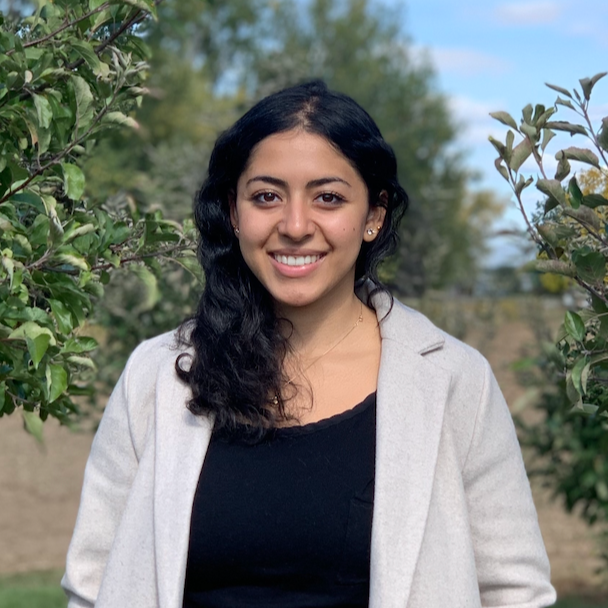
Project Title: Augmenting the Health Evidence™ Registry of quality appraised evidence syntheses on the effectiveness of public health interventions with AI assisted relevance screening, quality appraisal, and data extraction
National Collaborating Centre for Methods and Tools
Ashley has a Masters of Health Informatics from the University of Toronto. Ashley is working with the National Collaborating Centre for Methods and Tools (NCCMT) and is exploring the development, testing, and integration of machine learning (ML) and large language models (LLM) to streamline workflow processes within the evidence synthesis and research domain.
Nathan Lloyd
Project Title: Measurement and Assessment of Community Resilience
The Pamoja Institute
Nathan has a PhD in computer science. Nathan is working with the Pamoja Institute to discover and measure key indicators of community resilience for future use in fostering social capital.
Leslie Salgado Arzuaga
Project Title: AI4H in Media Coverage: Decoding the Symbolic Construction of AI4H in English-spoken Canadian News Media (2017- 2022)
Public Health Agency of Canada
Leslie’s doctoral research investigates the narratives of AI for Health (AI4H) in Canadian English-speaking news media from 2017 to 2022. By analyzing media portrayals, Leslie aims to enhance understanding of privileged voices, the main socio-technical controversies tackled, topics prevailing in the public sphere, and their interplay with the socio-political and economic context. Leslie is working with the Public Health Agency of Canada.
Konrad C Samsel
Project Title: Harnessing Natural Language Processing Models for Public Health Equity: Redefining Strategies for Addressing Diabetes Stigma and Gambling Addictions
HIVE Lab
Konrad is completing an MPH in Epidemiology with a Collaborative Specialization in Global Health (Class of 2024). Konrad is working with the Health Informatics, Visualization, and Equity (HIVE) Lab in the Institute of Health Policy, Management and Evaluation. Konrad’s project seeks to utilize natural language processing models to manage diabetes-related stigma and address gambling addictions within a Canadian public health context.
Abhi Sharma
Project Title: AI for helping emergency health responses in Canada
Public Health Agency of Canada
Abhi Sharma is completing a computer engineering BASc at the University of Toronto (Class of 2025). Abhi is working with the Public Health Agency of Canada.
Adam Sorrenti
Project Title: Exploring AI-Driven Synthetic Data for Public Health in Manitoba
Government of Manitoba
Adam holds a Master of Science in Computer Science with a specialization in Artificial Intelligence. Adam is working with the Government of Manitoba’s Data Science Program to determine feasibility of using generative AI to produce synthetic data-driven models and insights for public health, with a strong focus on maintaining privacy, ensuring equity, and mitigating risk.
2023
Rahul Gupta
Rahul Gupta is a master’s student with an emphasis in Data Analytics at University of Toronto. He is a skilled data scientist and machine learning engineer with over 1 year of experience in collecting, analysing, and deploying various types of data and ML models. He has applied his skills in various research projects including the assessment and prediction of chemical processes, breast cancer prediction and various other areas, such as Financial, Medical, social media and many more. He is a confident communicator with strong critical thinking and time management skills. In his recent project, he will be focusing on the use of medical imaging in populations and the application of computational techniques to quantify the prevalence of disease.
Mobeen Lalani
Mobeen Lalani is a Master of Health Informatics graduate at the Institute of Health Policy, Management and Evaluation, University of Toronto. Mobeen has also completed a Certificate in Health Law, focusing on Artificial Intelligence, from the University of Ottawa. The focus of his project is to review and evaluate the use cases of mobile apps and data sovereignty practices in enhancing health equity and promotion during times of social unrest and conflict.
Shifaa Mian
Shifaa Mian is a recent graduate of the Master of Management in Artificial Intelligence program from Queen’s University’s Stephen J.R. Smith School of Business. She is a data analyst with expertise in data visualisation, machine learning, and predictive analytics. She will be working with Trillium Health Partners on a project to analyse population health data to quantify disease prevalence within a specific geographic area. Using her skills in data analysis and tools such as Python, and R, Shifaa will delve into the data to identify patterns and relationships that can shed light on disease prevalence in the area. Her goal is to use the insights gained from this analysis to support decision-making and improve public health outcomes in the region. With her ability to effectively communicate technical information to both technical and non-technical audiences, Shifaa is well-equipped to tackle this important and impactful project.
Mohammed Reza Moravej

Reza is a MASc student in industrial engineering at the University of Toronto, where he works on utilizing machine learning algorithms to solve large scale discrete optimization problems. In collaboration with the staff of the hospital for sick children, he will be developing natural language processing models to help patients avoid common causes of disease and accidents.
Vishnu Priya Rajendran
Vishnu Priya Rajendran is currently pursuing a MEng – Electrical and Computer Engineering at University of Toronto. She specializes in Analytics and Computer Engineering. Her main areas of focus are Machine learning and Cloud technologies. Some of her academic projects includes Stock price prediction Analysis, Neural Network Number Detector etc. She will be working this year as an intern at Statistics Canada and working on microsimulation projects for diseases like cancer, dementia, and diabetics. Her role will comprise of helping with open-source workflow as well as integrating pipelines with R and Python.
Behrad Taghibeyglou
Behrad Taghibeyglou is a Ph.D. candidate in biomedical engineering at the University of Toronto. He has a broad educational background, holding dual bachelor’s degrees in biomedical engineering and electrical engineering from Amirkabir University of Technology in Iran and a master’s degree in biomedical engineering from Sharif University of Technology. Behrad’s research focuses on the intersection of biomedical signal processing, machine learning, and computer vision to enhance health outcomes. His current Ph.D. thesis centers on developing digital technologies to monitor sleep in individuals from low socioeconomic status.
Copyright © 2022 Artificial Intelligence for Public Health







